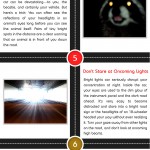9 Content Mistakes That Can Hurt Your SEO Rank
Once you have your website up and running, the next step is to get to the top of search engine results if you want to drive traffic towards your site. To do so, you have to put a lot of thought and effort into your content.
In order to boost your rank on search engines, meaningful content should go hand-in-hand with effective SEO strategies. SEO stands for search engine optimization and is a thriving marketing strategy in the digital world. Its goal is to put specific things in place on your website so that your site comes out as one of the first links on search engine results pages (SERPs). If you want to learn more about SEO, HigherVisibility explains search engine optimization in detail.
There are specific content mistakes, however, that can affect your SEO rank negatively. Check if your website commits any of these mistakes.
1. Having repetitive title tags on all your website pages
The first thing people will notice about your website is the title of each page on your site. To this day, there are website owners who still make the mistake of just having the same URL (the address of a World Wide Web page) for all of their site pages. If you do this, search engines will only keep sending people to the same page on your website. It will lessen the chances of your customers’ finding the other pages (and more important information) of your site by searching on Google alone.
An example of an ineffective URL is labeling all your site pages as simply “www.jewelrychoices.com,” if you’re selling jewelry. Google will just keep directing your clients to your homepage, even if your site has other tabs worth checking out.
To make it more effective and better your SEO rank, label each page as detailed as you can. For example, you may make your URL “www.jewelrychoices.com/womensjewelry/rings” to make it more specific and lead clients directly to a page that features rings for women.
2. Writing boring meta descriptions for your website pages
The meta descriptions of your website pages are valuable. These are the 130–160 character descriptions of your website that appear directly under your website link on Google search results. If your meta description is not enticing or doesn’t contain relevant keywords, customers might not be interested enough to click on your link. If written well, the meta description actually serves as a short sales pitch to your potential customers.
As an example, if you search for Tiffany Jewelry, the meta description for their website is “Shop stunning wedding rings and bands for him and her at Tiffany & Co. in platinum, 18k gold, rose gold and diamonds to find the perfect set to complete your….”
In such few words, the jewelry company manages to entice potential clients to check out its jewelry. If you don’t pay attention to the meta description of your homepage and each page of your site, people won’t want to click on your link in search results. This will eventually lower your SEO rank and make your site perform poorly on SERPs.
3. Using irrelevant words and phrases as your anchor text
One of the most critical elements of SEO is the anchor text. These are the underlined words or words in bold that lead to a different link when you click on it. Many websites make the mistake of using the generic phrases “click here” or “check this out” as the anchor text to lead readers to other pages on their site. Such anchor texts don’t give your readers an idea of what they can possibly read about next when they click on it.
Search bots can detect anchor texts as well. If you use generic anchor text, search bots won’t know what your link is about and how it can be of use to readers. You then lose an opportunity to improve your SEO rank.
Instead of using “click here” as your anchor text, make it more specific and therefore more effective. As an example, if you want clients to read more about your construction equipment business, you may make your anchor text “best construction equipment” or even “click here to learn more about construction equipment.”
4. Selecting the wrong keywords
Some website owners don’t research on the keywords that search engines and users are using most frequently when searching for specific things. Although you think certain keywords define your business accurately, your potential customers might be thinking differently. When they’re searching online, they might be typing in a different set of words to search for businesses like yours.
If you don’t use the right keywords, your target market may not find your site at all and you’ll possibly rank low on SERPs. If you want to appear as one of your customers’ top options, you have to be using and optimizing the correct keywords.
Fortunately, you may use online tools such as Google Trends, Google AdWords, and Google Keyword Planner to help you when you do your background research on the best keywords to use. For example, if you’re an SEO company, you might think the phrase “SEO companies” is already the best keywords to use to direct people to your site. A quick check on Google Trends will show you, however, that the more effective keywords to use are “SEO companies near me.”
5. Overusing keywords in your website content
Once you’ve identified the right keywords to optimize in your website, one possible mistake is overdoing it. If you repeatedly use your target keywords in as many paragraphs as possible, search engines will identify your content as spammy or irrelevant. This will affect your SEO rank negatively.
Moreover, overusing even the right keywords will make your write-ups appear robotic and senseless. So, once you find the best keywords to use in your content, utilize these judiciously and don’t sacrifice your content.
6. Writing content that’s not related to your keywords
Selecting the best keywords to use is one thing. Producing content that’s directly about your keywords is another matter altogether. If you fail in connecting your text directly to your intended topic, search engines will consider your content irrelevant and unhelpful to users. Your SEO rank will suffer.
Here are some ways you might be writing content wrongly:
- Trying to discuss several topics together in one piece of content or article
- Publishing poorly written articles just to incorporate the right keywords
- Writing just one article to optimize multiple keywords
If you want to be assured of a high SEO rank for your website, produce articles that are well written and that focus on one to two relevant keywords at a time. Doing so enables search engines to identify your content as being consistent with the keywords you’re optimizing.
7. Posting plagiarized articles or write-ups on your website
Another mistake in content is copying the work of other writers or sites and publishing it on your own website as your own. Nowadays, search engines can detect plagiarism in content and label this type of content as spam. Your SEO rank will lower if your website features plagiarized articles.
If you only post write-ups that already exist in other websites, Google can send you a manual penalty for featuring thin content with no value on your website. You may also receive a penalty for spinning content, which happens when you utilize a software to rework existing content and post it as a seemingly new article.
Instead of plagiarizing and spinning write-ups, write or outsource SEO agencies to craft new and relevant content for your website. The investment you make on content will pay off eventually as your rank in search engine results improves.
8. Neglecting image tags for your pictures
A picture can say a thousand words, as the adage goes. This is precisely the reason you should include high-quality photos on your website. It shouldn’t stop, however, with just inserting photos on your pages. Some websites forget to label their pictures with meaningful image tags.
In the world of SEO, the image tags you write for each picture matter. For one, if the user’s Internet is slow or there are blockers in place, the alt tags you put for your pictures will still be displayed. Even if the image file itself doesn’t load, your readers will still have an idea about the image you put on your webpage.
Additionally, alt tags give your pictures better descriptions, and search engine crawlers utilize these tags to classify your content (which includes photos) accurately. Remember that search bots can’t see images, but they can process the information in your alt tags. If you include relevant keywords in your alt tags, this will help you rank higher on search pages.
9. Not prioritizing quality links
In the world of SEO, as with many other things, quality beats quantity. A mistake that website content writers make is to include many low-quality or inconsequential links in an article. If these links are not beneficial to your readers, search bots will rank your content as useless and spammy.
Rather than linking your content to dubious websites, link to websites that have meaningful content, are high-ranking on search results, and have good reputations online. It’s better to have few but good-quality links on your website than to have many that are of poor quality.
Conclusion
When you write your content for your website, you do so because you want your site to rank high when your potential customers do an online search. If you commit mistakes in how you write your content, it could harm your rank on the search results and drive traffic away from your website. You have to make sure that you’re creating content the right way if you want to get the results you want for your website and your business.
















